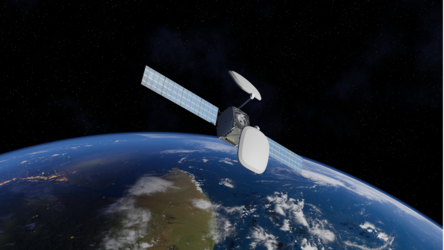Accept all cookies Accept only essential cookies See our Cookie Notice

About ESA
The European Space Agency (ESA) is Europe’s gateway to space. Its mission is to shape the development of Europe’s space capability and ensure that investment in space continues to deliver benefits to the citizens of Europe and the world.
Highlights
ESA - United space in Europe
This is ESA ESA facts Member States & Cooperating States Funding Director General Top management For Member State Delegations European vision European Space Policy ESA & EU Space Councils Responsibility & Sustainability Annual Report Calendar of meetings Corporate newsEstablishments & sites
ESA Headquarters ESA ESTEC ESA ESOC ESA ESRIN ESA EAC ESA ESAC Europe's Spaceport ESA ESEC ESA ECSAT Brussels Office Washington OfficeWorking with ESA
Business with ESA ESA Commercialisation Gateway Law at ESA Careers Cyber resilience at ESA IT at ESA Newsroom Partnerships Merchandising Licence Education Open Space Innovation Platform Integrity and Reporting Administrative Tribunal Health and SafetyMore about ESA
History ESA Historical Archives Exhibitions Publications Art & Culture ESA Merchandise Kids Diversity ESA Brand Centre ESA ChampionsLatest
Space in Member States
Find out more about space activities in our 23 Member States, and understand how ESA works together with their national agencies, institutions and organisations.
Science & Exploration
Exploring our Solar System and unlocking the secrets of the Universe
Go to topicAstronauts
Missions
Juice Euclid Webb Solar Orbiter BepiColombo Gaia ExoMars Cheops Exoplanet missions More missionsActivities
International Space Station Orion service module Gateway Concordia Caves & Pangaea BenefitsLatest
Space Safety
Protecting life and infrastructure on Earth and in orbit
Go to topicAsteroids
Asteroids and Planetary Defence Asteroid danger explained Flyeye telescope: asteroid detection Hera mission: asteroid deflection Near-Earth Object Coordination CentreSpace junk
About space debris Space debris by the numbers Space Environment Report In space refuelling, refurbishing and removingSafety from space
Clean Space ecodesign Zero Debris Technologies Space for Earth Supporting Sustainable DevelopmentLatest
Applications
Using space to benefit citizens and meet future challenges on Earth
Go to topicObserving the Earth
Observing the Earth Future EO Copernicus Meteorology Space for our climate Satellite missionsCommercialisation
ESA Commercialisation Gateway Open Space Innovation Platform Business Incubation ESA Space SolutionsLatest
Enabling & Support
Making space accessible and developing the technologies for the future
Go to topicBuilding missions
Space Engineering and Technology Test centre Laboratories Concurrent Design Facility Preparing for the future Shaping the Future Discovery and Preparation Advanced Concepts TeamSpace transportation
Space Transportation Ariane Vega Space Rider Future space transportation Boost! Europe's Spaceport Launches from Europe's Spaceport from 2012Latest

Small geostationary satellite named HummingSat passes milestone review
An innovative small-sized satellite product line for geostationary telecommunications has passed its ESA system requirements review and received its official name of “HummingSat”.
The slimline satellites – named after the tiny, agile, fast-moving and yet apparently stationary hummingbird – are being developed under a Partnership Project between ESA and SWISSto12, an innovative company based in Renens, Switzerland.
The work forms part of ESA’s efforts to support fast, dynamic and agile private space firms to foster innovation and promote the competitiveness of the European space industry.
The new satellite product line has just passed its system requirements review, assessed by a panel of ESA senior engineers and experts. This first major programme milestone was subsequently declared as successful by a management board composed of ESA and SWISSto12 representatives.
The HummingSats are just over one cubic metre in volume, which is one-tenth the size of conventional satellites placed in geostationary orbit some 36 000 kilometres above Earth.
Because they are small and lightweight, HummingSats are much more affordable to build and launch, enabling satellite operators to provide bespoke regional or gap-filling services that would not be financially viable using large satellites. HummingSats can also offer a competitive replacement option for certain legacy geostationary satellites that have reached the end of their lifetime.
SWISSto12 is leading a consortium of European companies with established space technology and heritage. The HummingSat Partnership Project is a showcase for innovation and disruptive solutions introduced through ESA working hand-in-hand with industry. ESA shares the development risks whereas the private partner assumes the commercial risk.
With this partnership approach, challenging projects such as HummingSat become viable for the commercial market and offer an opportunity for high returns on investment to industry and participating states.
The first commercial satellite operator to order a HummingSat will be announced soon.
-
CREDIT
SWISSto12 -
LICENCE
ESA Standard Licence

Artists impression of the IS-45 HummingSat platform

Asteroid 99942 Apophis

Models of Proba-3 designs

ESA's Small GEO satellite















 Germany
Germany
 Austria
Austria
 Belgium
Belgium
 Denmark
Denmark
 Spain
Spain
 Estonia
Estonia
 Finland
Finland
 France
France
 Greece
Greece
 Hungary
Hungary
 Ireland
Ireland
 Italy
Italy
 Luxembourg
Luxembourg
 Norway
Norway
 The Netherlands
The Netherlands
 Poland
Poland
 Portugal
Portugal
 Czechia
Czechia
 Romania
Romania
 United Kingdom
United Kingdom
 Slovenia
Slovenia
 Sweden
Sweden
 Switzerland
Switzerland


























